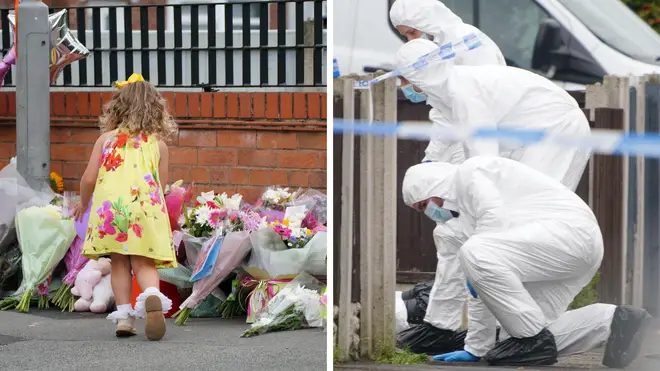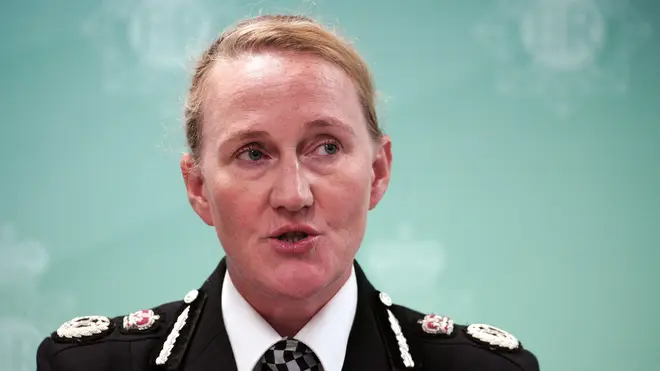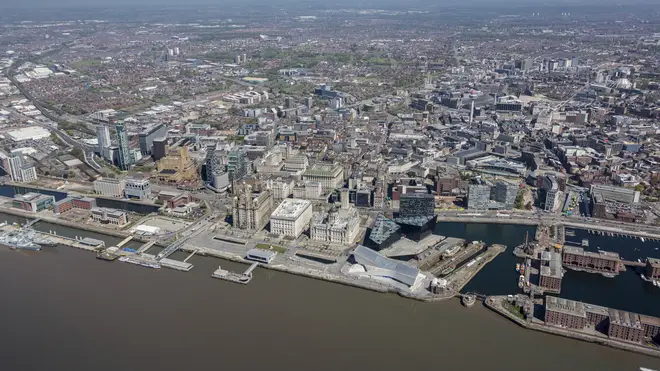
Shelagh Fogarty 1pm - 4pm
24 August 2022, 15:54 | Updated: 24 August 2022, 16:09

Liverpool's detectives investigating the killing of Olivia Pratt-Korbel have appealed to the city's “criminal fraternity” – a world of sophisticated crooks that have been likened to the Sopranos.
The city has been rocked by the nine-year-old girl’s killing, believed to be an accidental shooting in which the intended target ran into her house, leaving her dead and her mother injured. It has been speculated to be a "tit for tat" shooting.
Usually, the organised crime gangs operating in Merseyside are a world away from the street violence that flares up alarmingly frequently in London.
The sophisticate criminal networks make massive sums of money and tend to keep violence against each other away from the public eye and 'civilians' – using targeted attacks with guns instead of knife attacks on the street.
Liverpool's criminals are said to "dominate" the gun trade outside of London.
LBC spoke to gang expert Professor Simon Harding, a professor of criminology and director of the National Centre for Gang Research at the University of West London.
"What Liverpool is infamous for is organised crime, and these are older men, many of whom are white but not exclusively, but it’s a different kind of scenario," he said.

"These are people who are involved in higher levels of organised crime. That might be importation of drugs from Europe or abroad, it might be racketeering, it might be profiteering, it might be running sex trade work with prostitutes, and high level robbery and fraud, so they are involved at a much higher level.
"And they also tend to be family-based, so there's lots of old families from Liverpool who would be criminally connected, probably a bunch of brothers, extended cousins, things like that, many of whom will have extensive criminal careers."
Prof Harding said the impression of a "gangland" where all of the public is at risk from violence like this week's shooting - if it is linked to gang activity - is inaccurate.
When it comes to Liverpool's gangsters, the public will more often see what he calls their "shop floor", criminal activities like drug dealing, rather than shootouts in the street.
Some parts of the business world could end up having run ins too – for example, when the gangs try racketeering, where they force businesses to pay "protection money" or risk having their business attacked.

These organised crime gangs are a world away from the street violence seen where young people attack other youngsters in London.
They're older, more sophisticated and richer – described by Prof Harding as being at a "postgraduate level" for crime.
They are involved in "hundreds and hundreds of thousands of pounds" of criminal enterprise like drug shipments, human trafficking, sex work, vying for control and choosing to carry out a hit instead of starting a fight in the street, something that would represent a clumsy and botched attack for these gangsters.
"The reality is certainly with organised crime it's very much from one family to another, it's one group of criminals to another, and it can occasionally flare up and it can create these problems, but this current situation is quite unique," Prof Harding said.
"You tend to find street gangs in Liverpool, Birmingham and Manchester tend to use knives, they're young kids usually under the age of 21, and it’s very much knife-enabled crime.
"When you get up the ranks, or to the next level of organised crime, you're looking at firearms and shootings and that's partly because they can access them, they can access the guns, and the ammunition, they can pay for them, they can buy them, because they're working in a criminal world that has far higher levels of profit and money.

Olivia Pratt-Korbel named as nine-year-old victim of Liverpool shooting
"These are largely white families who are trying to take control over various criminal enterprises falling into argument and beef with each other and occasionally that plays out, usually with a targeted shooting."
The exact scale of the crime – the number of families, the amount of people involved, the exact financial value, was unclear.
They have been said to operate on a "no grass" rule that stops information leaking to the authorities.
In the wake of Olivia's killing, Merseyside Police Chief Constable Serena Kennedy appealed to "members of the criminal fraternity" to "examine their consciences" in a bid for someone to reveal information.
Liverpool has become a hub for organised crime through a combination of geography and history.
As a port city, it provides plenty of opportunity for illicit business. Prof Harding said high levels of drug use provide it with an accessible market.
And its history has seen a variety of people come to the city who established organised crime operations - largely from a state of poverty - and those have their criminality passed on through generations, with some of these gangs tracing their roots back for decades.
"These families didn't appear yesterday, they've been here 30, 40, 50 years. Some of their crime has been intergenerational, so it passes from father to son, down the family - we're kind of talking like the Sopranos to be honest," Prof Harding said.